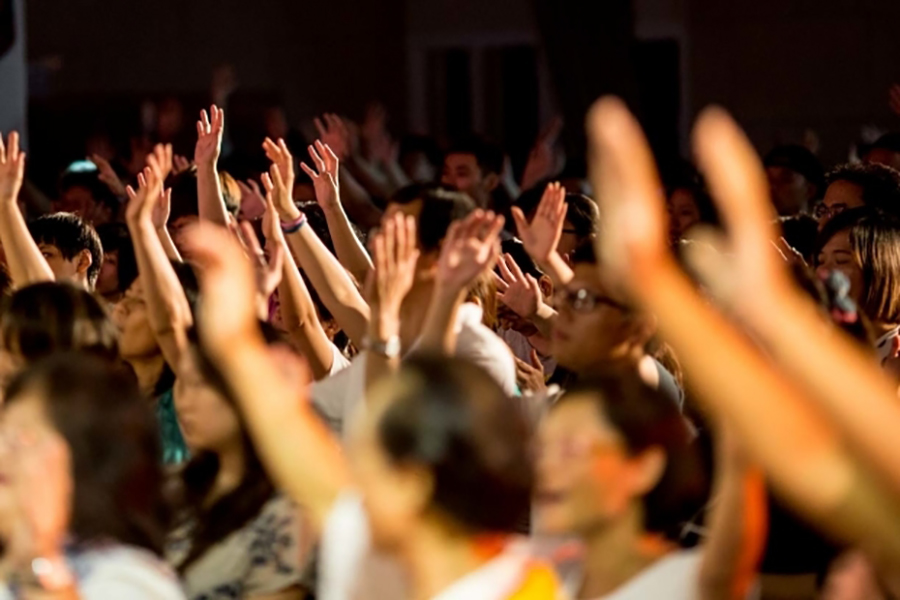Sister Yuan has been a believer for more than a decade. On the whole, I think she is devout and religious. Despite her busy schedule, she is rarely absent from church life. In addition to that, she misses none of the theological training courses provided by her church. She also completely entrusts her future marriage to God.
She came to a strange city alone more than ten years ago, and as a migrant worker with little education and skills, she was full of panic. Fortunately, however, Christian faith gave her comfort, and she found her current church. There was a group of young women like her in the church. She soon established good interpersonal relationships with them and committed herself to the church. At that time, the church highly regarded commitment. In order to ensure the high commitment of believers, the church held many related activities. The church did not advocate for believers of other churches to come for gatherings, nor did it call for its own believers in other churches.
Therefore, Sister Yuan highly acknowledged her church and actively took part in all its activities, including giving regular tithes and offerings to it.
The outbreak of COVID-19 had no effect on her church commitment except occasionally for travel and work. Although she could not go to the church in person during the lockdown, she could still attend the weekly online services.
It was six months after the pandemic that the change was obviously noticed. She told me that listening to online services at home was very different from that in person. At first, she could concentrate by keeping “reverence” and listening to the sermon. Later, she lost control. Usually, after listening for a while, she would get up to drink water or eat snacks, even browsing through social media videos.
Online gatherings were not like services on-site. Well-to-do churches could afford to decorate their live broadcast rooms luxuriously with bands and sonorous sermons, which did not only bring visual and auditory sensations to her but also a spiritual overwhelm. Her church paled in comparison with those.
Later, she always browsed online videos of other church services. It became a habit for her. Since then, in the last two years of the pandemic, she felt that her commitment to the original church was slowly shaken, and she gradually became a believer who was wandering away.
After the pandemic was over, some changes also took place. Three years after the pandemic, due to the influence of the big environment, her church’s contribution income decreased sharply, and it was unable to afford the original rent, so it had to withdraw the rent. For the time being, they meet in a believer’s home, and the living room of the believer has no sense of solemnity like the church except for hanging a cross on the wall. She feels now that her relationship with this church can never go back to the past as the number of people in the church is decreasing. All the members who are her friends have left the city because of marriage, work, or migrating to other regions. Of course, more are because of the pressure under the economic tide, and they have returned to their hometowns.
Due to economic pressure, the church cannot undertake activities to maintain believers’ commitments as it did in the past. After the pandemic, the church rarely had meal gatherings, and there have been no activities such as bible study and testimonies for more than three years.
She herself said that her present situation is not bad, and she occasionally goes to her own church. However, the church of a friend of hers was dissolved in the second year of the pandemic because the pastor had to go back to his hometown out of economic pressure, and the believers were set to a state of “self-study”.
Now, sister Yuan remains still single, and she no longer hopes that the church will find her own emotional affiliation. She purchasaed a small apartment through her own labor. She describes her state in her own words, “Life is quite good now, and I am free. I used to think that without a church, life was a kind of shortage, but now I think that it is equally good without a church. In the past, when I was suffering, the church helped me a lot. I did not have much money to go shopping, eat delicious food, or buy beautiful clothes. My church did not advocate these things anyway. So I felt very comfortable with the church. Look at me now. I am not the same as before. It is quite comfortable to go shopping, eat food, and hang out with friends at weekends.”
Sister Yuan is not a single case. Through her life experience, it may be possible to draw a conclusion about one point of the present situation in Christianity: believers tend to be atomized.
The problems of the general environment have directly brought about greater economic pressure on churches, and some are unable to bear the cost of worship meetings and other Christian activities. The direct result of the reduction of these sacred activities is that believers’ commitment to the church is reduced. As a result, some believers began to dissociate themselves from the church. On the one hand, it shows that some churches are disappearing. It also shows that the attractiveness of churches is declining.
In addition, the value orientation provided by the church, the teachings of the church, and the current concerns of young people’s lives have many dislocations and even provide the opposite value orientation, which makes believers consciously stay away from the church.
The atomization tendency of believers may become increasingly clearer. One of the possible development directions for Christianity in the future is the model of shop windows. Like a shop selling religious products, the church could be displayed in the window for those customers who come in and need religious comfort to choose from. This is obvious in Buddhism. Many people are willing to burn incense, make wishes, buy beads, and invest money in merit boxes, but they will not accept the precepts of not killing and not eating meat, let alone shaving their hair and wearing cassocks.
This once again tells us that the culture of faith is likely to be the normal state in the future, not the doctrine and organization of religious forms.
- Translated by Charlie Li












